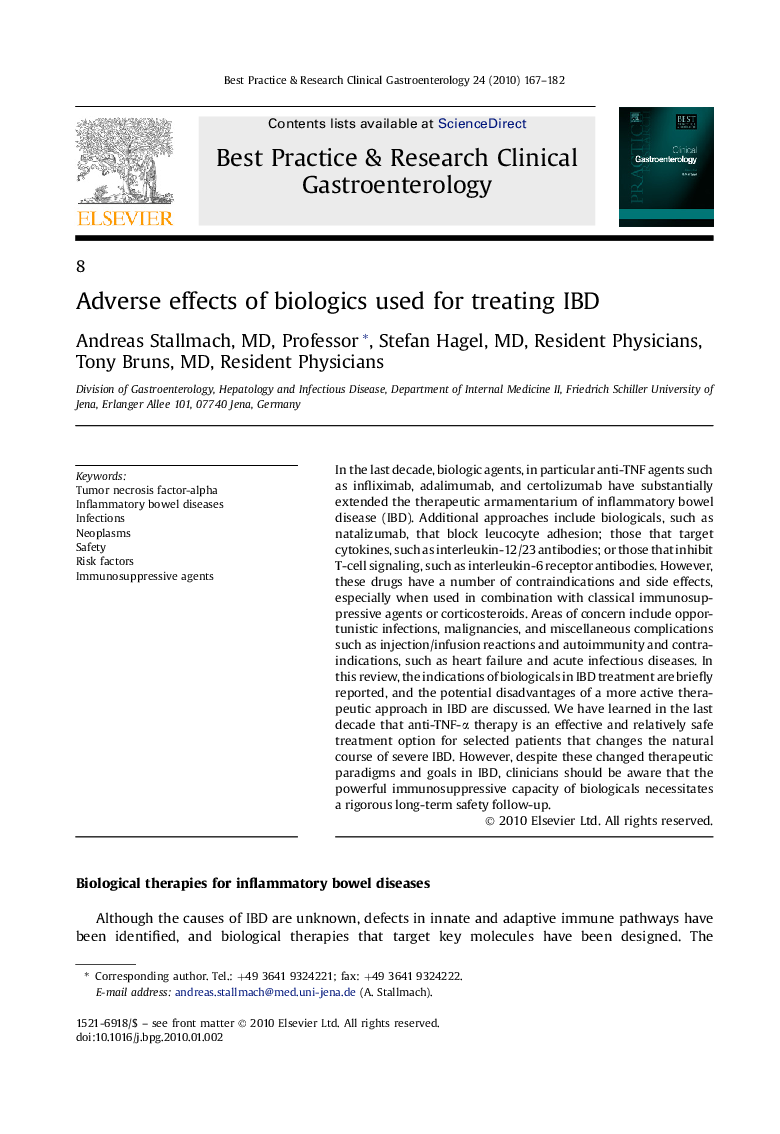| کد مقاله | کد نشریه | سال انتشار | مقاله انگلیسی | نسخه تمام متن |
|---|---|---|---|---|
| 3254732 | 1207232 | 2010 | 16 صفحه PDF | دانلود رایگان |

In the last decade, biologic agents, in particular anti-TNF agents such as infliximab, adalimumab, and certolizumab have substantially extended the therapeutic armamentarium of inflammatory bowel disease (IBD). Additional approaches include biologicals, such as natalizumab, that block leucocyte adhesion; those that target cytokines, such as interleukin-12/23 antibodies; or those that inhibit T-cell signaling, such as interleukin-6 receptor antibodies. However, these drugs have a number of contraindications and side effects, especially when used in combination with classical immunosuppressive agents or corticosteroids. Areas of concern include opportunistic infections, malignancies, and miscellaneous complications such as injection/infusion reactions and autoimmunity and contraindications, such as heart failure and acute infectious diseases. In this review, the indications of biologicals in IBD treatment are briefly reported, and the potential disadvantages of a more active therapeutic approach in IBD are discussed. We have learned in the last decade that anti-TNF-α therapy is an effective and relatively safe treatment option for selected patients that changes the natural course of severe IBD. However, despite these changed therapeutic paradigms and goals in IBD, clinicians should be aware that the powerful immunosuppressive capacity of biologicals necessitates a rigorous long-term safety follow-up.
Journal: Best Practice & Research Clinical Gastroenterology - Volume 24, Issue 2, April 2010, Pages 167–182